When it comes to cultivating a thriving raspberry garden, choosing the right companion plants can make all the difference. Raspberry companion plants play a crucial role in enhancing soil health, deterring pests, attracting beneficial insects, and maximizing yield.
From aromatic herbs like mint and chamomile to members of the allium family such as garlic and onions, the options are diverse and beneficial. By strategically selecting companion plants, gardeners can create a harmonious ecosystem that promotes the health and productivity of their raspberry plants.
Let’s explore some of the most effective and advantageous raspberry companion plants to cultivate a flourishing garden.
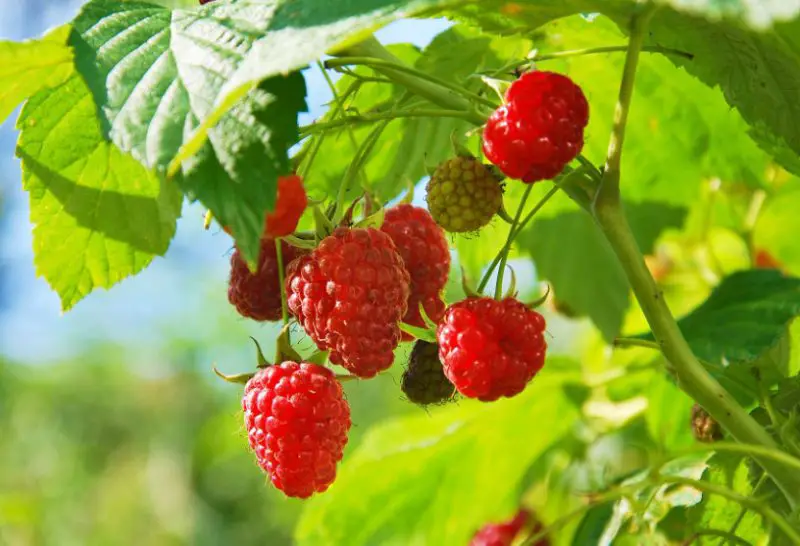
Different Types of Raspberry Companion Plants
Lavender
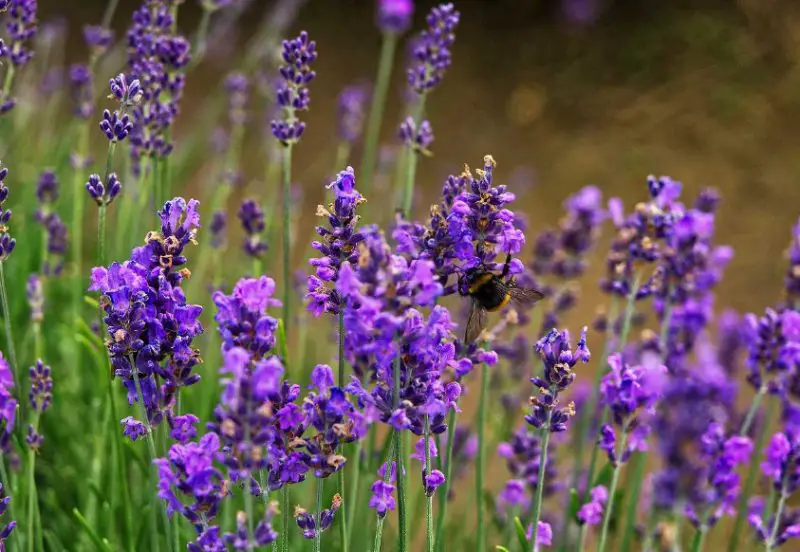
Lavender is an excellent companion plant, being deer- and rabbit-resistant while repelling pests like aphids, slugs, and mosquitoes. It also attracts beneficial insects to your garden. To maximize its benefits, it’s essential to know the blooming times of different lavender varieties.
Lavender thrives in poorer, drier soils, unlike raspberries, so it’s best to grow them in separate containers to satisfy both plants’ needs. This way, you can enjoy a thriving, pest-free garden throughout the growing season.
Marigolds
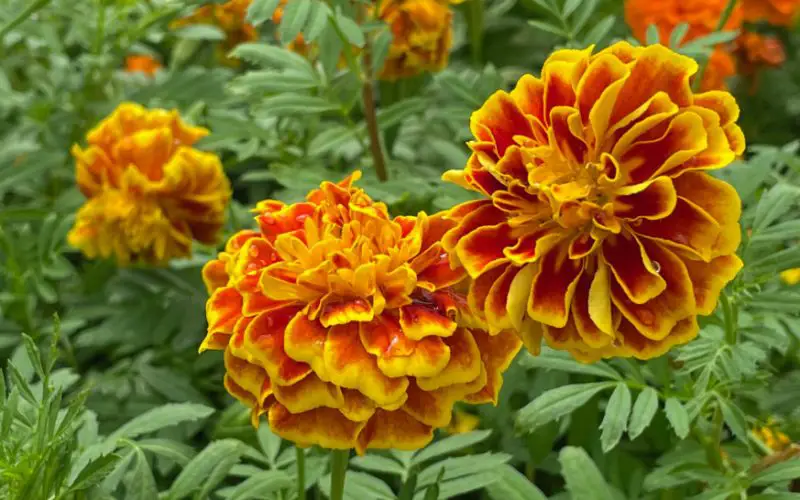
Marigolds are not only visually appealing but also offer numerous benefits for your garden. They deter root-knot nematodes, eelworms, potato and Japanese beetles, rabbits, and other pests.
Additionally, marigolds attract pollinators, enhancing the productivity of your raspberry patch and improving your harvest. By planting marigolds, you can protect your garden and support the health and growth of other plants, making them a valuable addition to any garden.
Mint
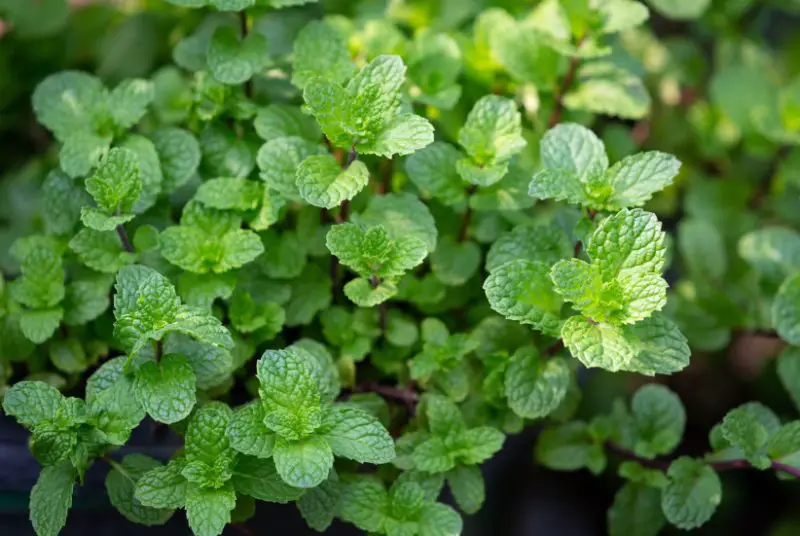
The mint family includes many herbs like lavender and oregano, but mint typically refers to the herb with a fantastic aroma. Spearmint repels aphids, while peppermint deters cabbage moths. The intense fragrance of mint drives away many unwanted insects, making any variety beneficial for your garden.
Mint can even enhance the flavor and growth of neighboring plants, so consider placing a container near your raspberries. Although mint requires consistent moisture, there are effective ways to ensure it gets the water it needs. Mint is a versatile and valuable addition to any garden.
Nasturtiums
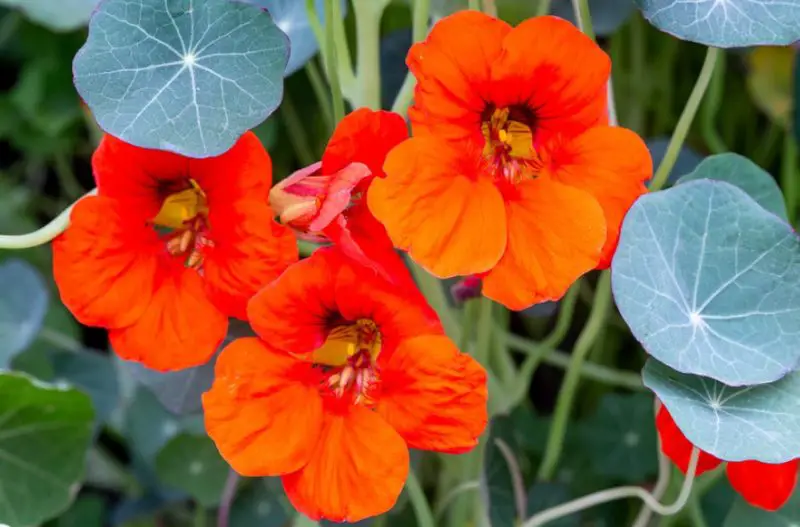
Nasturtiums are excellent companions for many plants, deterring pests like squash bugs, aphids, and whiteflies. They can serve as sacrificial crops, attracting pests away from your raspberries to keep them safe.
Additionally, many gardeners believe in nasturtiums’ “magic powers” to enhance the growth and flavor of nearby plants. These vibrant flowers not only protect your garden but also contribute to a healthier, more productive growing environment.
Oregano
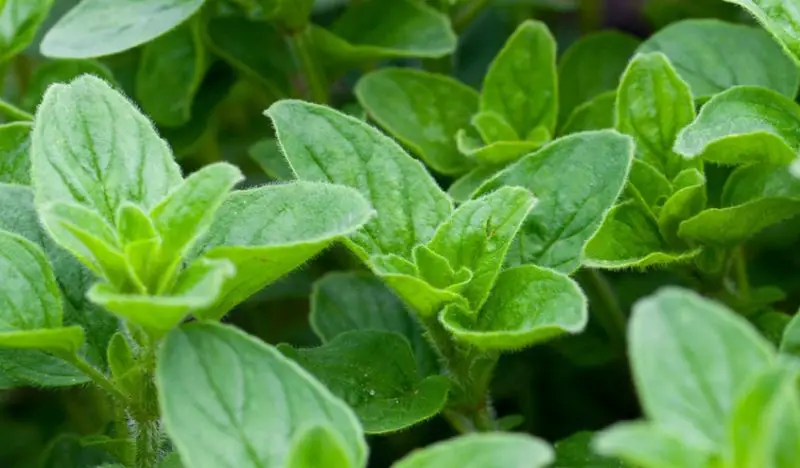
Oregano is a fragrant herb that repels cucumber beetles, aphids, and squash bugs. While some claim oregano can boost crop yields, this is likely due to its ability to attract pollinators rather than any mysterious superpower.
Its aromatic presence not only protects your garden from pests but also promotes a healthy environment for your plants to thrive in. Including oregano in your garden can enhance plant health and productivity.
Squash
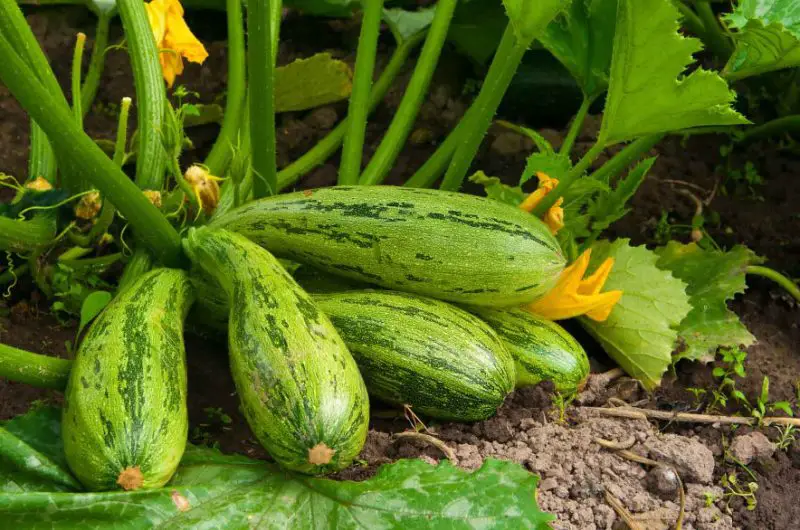
Summer squash and pumpkins, like cucumbers, are excellent for protecting raspberry roots from drying out. Their vines help retain soil moisture and reduce evaporation, aiding your raspberries in surviving the summer heat.
By planting these squash varieties, you create a natural mulch that keeps the soil cool and moist, ensuring your raspberry plants remain healthy and productive throughout the season.
Yarrow
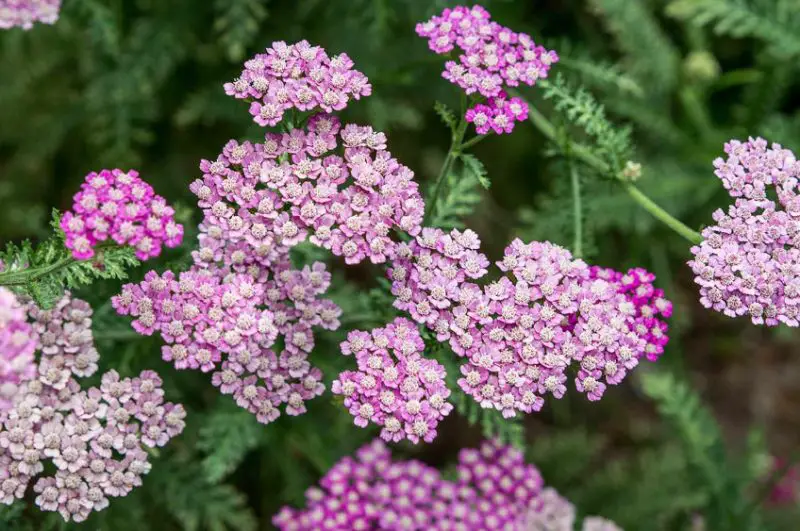
Yarrow offers significant benefits, such as deterring pests and attracting pollinators. It specifically repels harlequin beetles and helps control other infestations by inviting ladybugs, which consume various insect eggs. Yarrow not only protects your garden but also enhances its ecological balance.
If you enjoy growing yarrow, consider pairing it with other companion plants to maximize its advantages and create a thriving garden environment.
Turnips
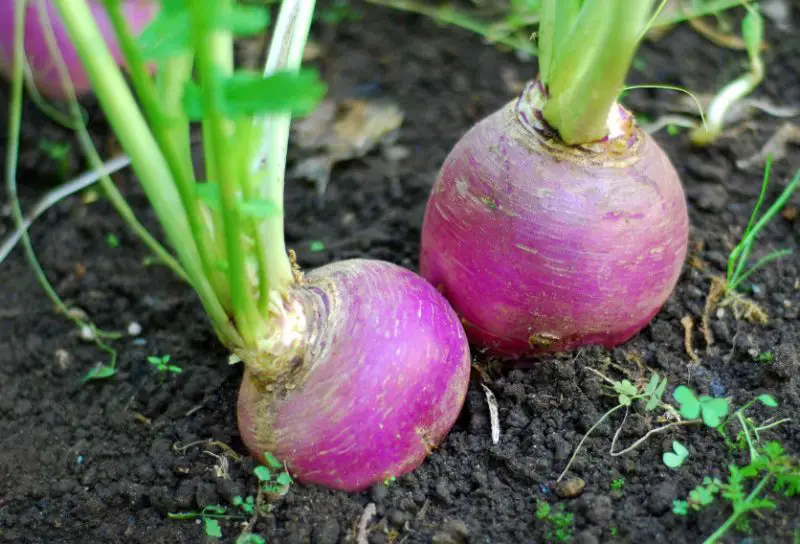
Turnips are excellent companion plants for raspberries, primarily because they repel harlequin beetles. These pests prefer brassicas like broccoli, Brussels sprouts, cauliflower, cabbage, and turnips, sparing your raspberries when these vegetables are present.
In the event of a heavy outbreak, turnips can act as sacrificial plants, protecting your raspberries by attracting the beetles away. This strategy helps maintain the health and productivity of your raspberry plants.
Tansy
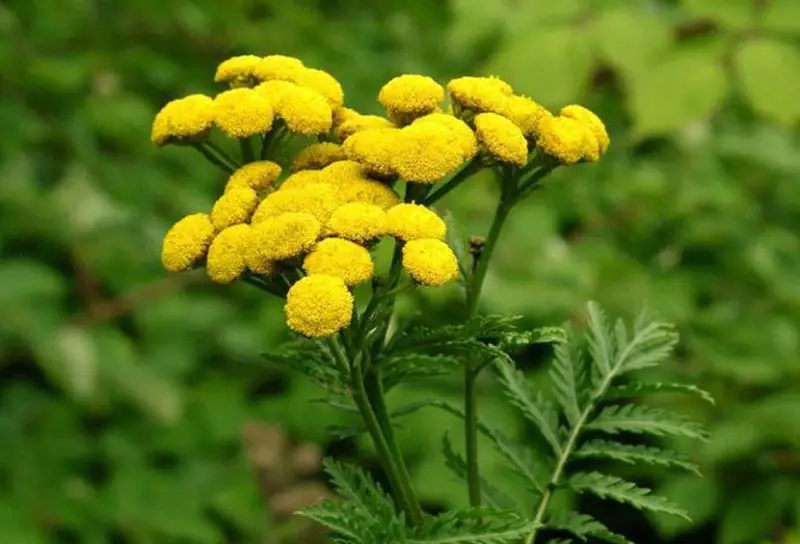
Tansy leaves are poisonous to humans, containing a toxic compound called thujone that repels harmful insects. Besides deterring pests, tansy attracts beneficial insects that help pollinate your raspberry patch.
Additionally, tansy can provide a quick boost of potassium to your plants, enhancing their health and growth. This makes tansy a valuable and multifunctional companion plant in your garden.
Cucumbers
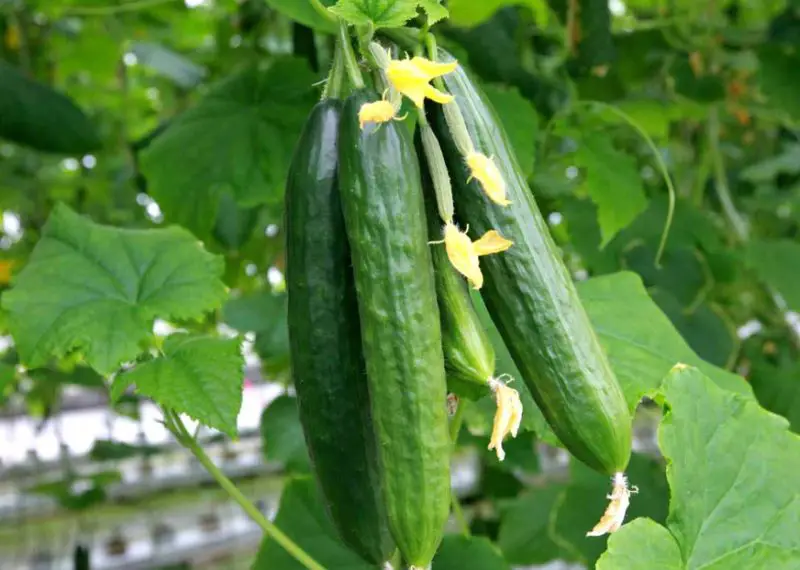
Bush cucumbers are excellent companions for raspberries, providing effective ground cover during hot temperatures to help retain soil moisture. Their large yellow flowers attract pollinators, boosting the yield of both raspberries and cucumbers.
This mutually beneficial relationship enhances the overall health and productivity of your garden, making bush cucumbers a valuable addition alongside your raspberry plants.
Cover Crops (Legumes)
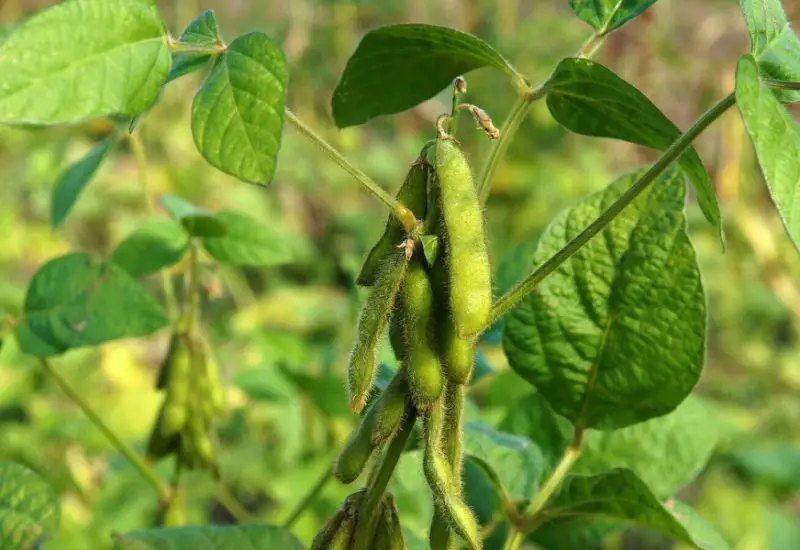
Various cover crops, particularly legumes, offer effective protection for raspberry roots against heat while enriching the soil with essential nutrients like nitrogen. Common legume cover crops such as lentils, alfalfa, chickpeas, peas, clover, and soybeans are ideal choices.
These crops serve multiple purposes, acting as ground cover to reduce soil erosion, attracting pollinators to benefit raspberry plants, and fixing nitrogen in the soil, promoting healthy growth. Utilizing legume cover crops is a sustainable and beneficial practice for maintaining soil health and enhancing the productivity of your raspberry garden.
Comfrey
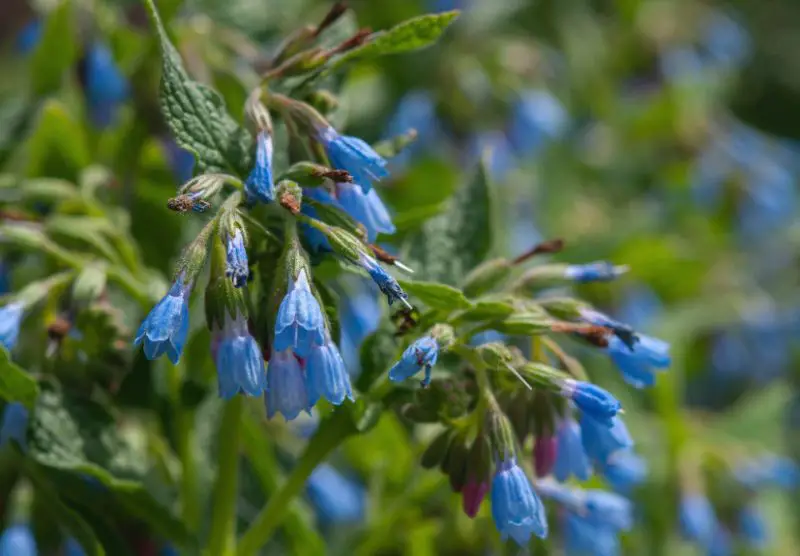
Comfrey is gaining popularity for its numerous benefits to raspberries. Its striking purple flowers attract pollinators, while its roots foster essential microorganisms for nitrogen fixation. Beyond enhancing yield by attracting beneficial insects and providing valuable nutrients, comfrey can also serve as mulch.
After withering, leaving it around your vegetable garden or raspberry patch helps protect plant roots from drying out and suppresses weed growth. Comfrey is a versatile and valuable addition to any garden, offering both aesthetic appeal and practical benefits for plant health and productivity.
Chervil
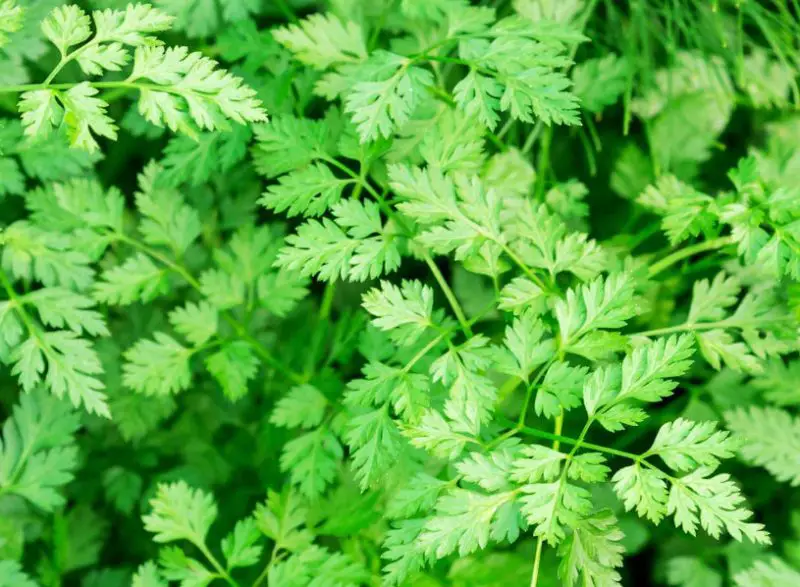
Chervil, a herb flourishing in partial shade, makes an excellent companion for raspberries. Its ability to repel slugs offers natural pest control. Planted beneath raspberry trellises, chervil shields vine roots from intense summer heat. Acting as a mulch substitute, it reduces soil moisture evaporation.
Additionally, chervil is reputed to enhance the flavor of neighboring plants, adding an extra layer of benefit to its role in the garden. With its versatility and advantageous properties, chervil contributes to creating a thriving and flavorful environment for raspberry cultivation.
Chamomile
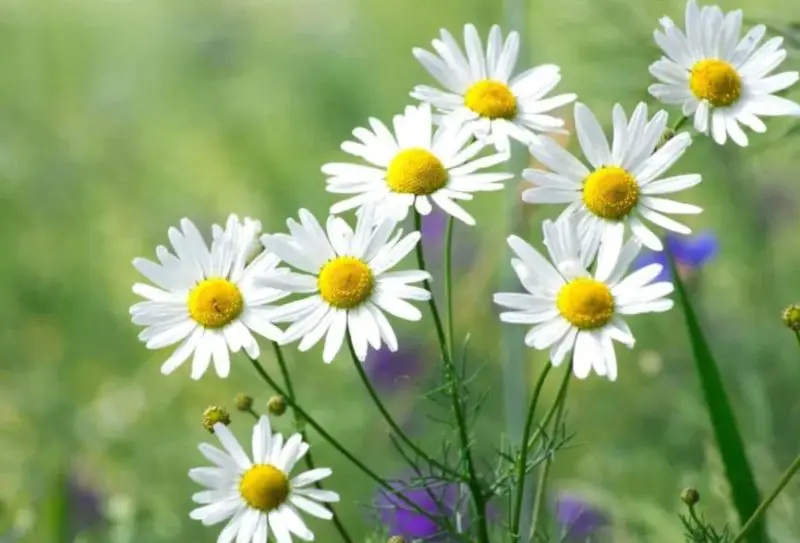
Chamomile, renowned for its potent aroma, serves as a natural repellent against pests like carrot flies, squash bugs, and mosquitoes. Its delightful fragrance also draws beneficial insects like pollinators and ladybugs, fostering proper pollination and safeguarding plants from spider mites and aphids.
If you appreciate chamomile’s benefits, exploring additional companion plants to grow alongside it can further enhance your garden’s health and biodiversity.
With its pest-repelling properties and ability to attract beneficial insects, chamomile proves to be a valuable asset in creating a thriving and harmonious garden ecosystem.
Alliums (Chives, Garlic, and Onions)
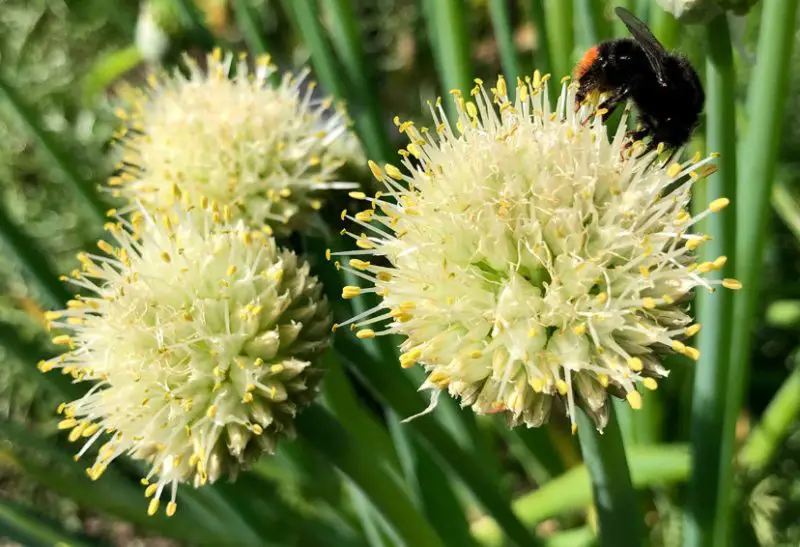
Alliums, including onions, chives, leeks, and garlic, make excellent companions for raspberries due to their strong odor that pests dislike. Rich in sulfur, they effectively repel slugs, aphids, cabbage worms, and carrot flies, offering protection to various plants in your garden. Garlic, in particular, is believed to enhance the taste and growth of raspberries and other plants, providing additional benefits.
Furthermore, alliums produce beautiful flowers that attract pollinators, contributing to a bountiful raspberry yield. With their pest-repelling properties, flavor enhancement, and ability to attract beneficial insects, alliums are indispensable companions for a thriving raspberry garden.






